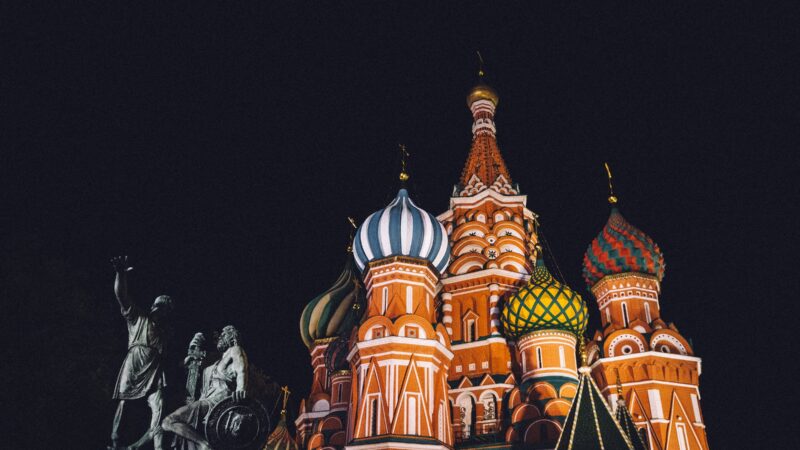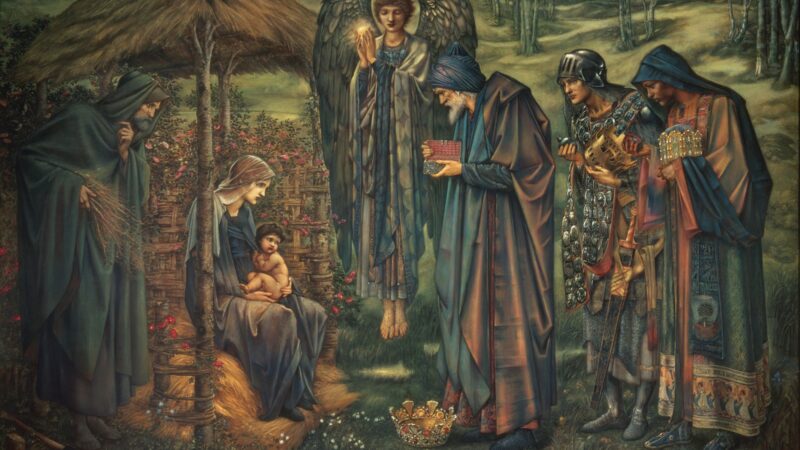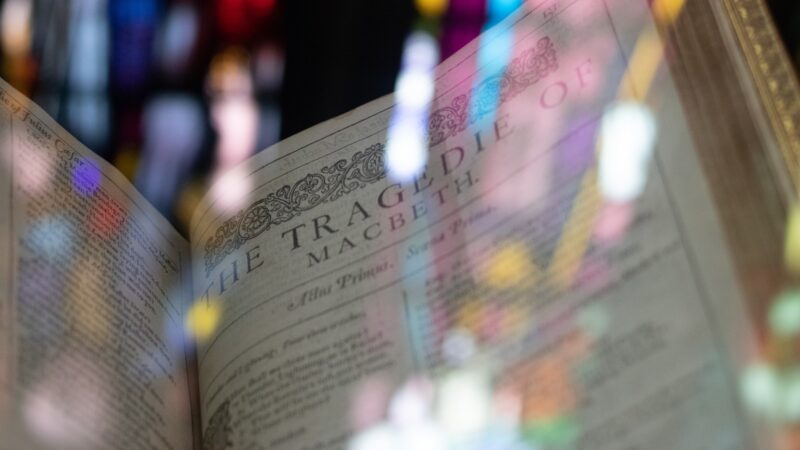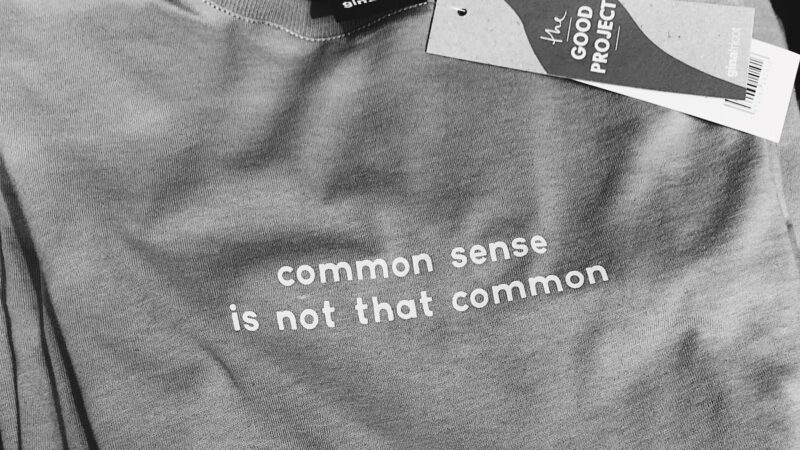Slavophilism: The Russian Model for Anglo Conservatives
‘The idea is like a pair of glasses on our nose through which we see whatever we look at. It never occurs to us to take them off’ – Ludwig Wittgenstein, Philosophical Investigations
We are all Blairites now. It is a horrible thought, especially to those of us who despise the Blairite constitutional project: from gutting the Lords to the creation of the devolved assemblies, and the paradoxical tension between the move towards localism and the edictal erasure of British ways of life. The sad reality is that we live in Blairite Britain, more than we live in Thatcherite Britain.
Such a thought, as uncomfortable as it is, must be the starting point of all conservative discussions, whether they are concerned with strategy, identity, or even over what we aim to ‘conserve’, because we can only begin to know where to go by knowing where we are. David Foster Wallace once gave a talk to a graduating class in which he told the following story:
There are these two young fish swimming along, and they happen to meet an older fish swimming the other way, who nods at them and says, “morning boys, how’s the water?” and the two young fish swim on for a bit and eventually one of them looks over at the other and goes, “what the hell is water?”
The story is intended to remind us of a simple truth: that the most obvious realities are the hardest to talk about, because they are so essential and taken for granted in our daily lives. Blairism is the cultural water we swim in, and the current that drives us inexorably towards the next crisis we cannot resolve, because Blairism holds the conflictual beliefs that government should be in every part of our lives, but that it should be so completely and utterly impotent. Think about how difficult it is to do anything in modern Britain, but that you absolutely must do it whilst holding the hand of the government.
Regardless of Blairism’s inherent contradictions, we must not ignore the tide, even if only to swim against it. How do we do this? In Modern Culture, Sir Roger Scruton wrote that we cannot
return to a pre-Enlightenment world because the Enlightenment is so inherent to how we think about society, Man, government, culture and so on. Even those of us who are believers in faith must accept that the draperies were torn down; but only by realising they were torn down can you put them back up. So, rather than deny the legacies of the Enlightenment, Sir Roger says, we must accept that they are with us, and instead ‘live as if it matters eternally what we do: to obey the rites, the ceremonies and the customs that lend dignity to our actions and which lift them above the natural sphere’.
The philosophical movement that took this lesson to heart the most, in my opinion, was the Romantics. They did not pretend that the legacies of the Enlightenment were so easily eradicable nor so easily deniable; instead, they accepted that they lived in a changed world, but sought to use that change to re-suture man’s relationship with himself, to correct the deficiencies of the Enlightenment and the empty rationalism that it loved so irrationally.
The Romantic movement, by virtue of its own logic, was not universalist. The Enlightenment sought to be universal, to find laws and rules that governed Man in every circumstance and every place; but Romanticism, in reaction, favoured particularism, rootedness, and the cultural significance of place and people. In fact, so many of the nationalist movements of the nineteenth century owed more to the Romantics than they did to the Enlightenment (but again, only in the sense that the Enlightenment showed us that all humans are deserving of dignity and respect, they just choose to express that dignity in varied ways).
One such example of Romanticism that has always fascinated me emerged in Russia in the 1830s, more than anything because I believe that Russia then holds a multitude of lessons for Britain now. Early-nineteenth century Russia experienced what could only be described as an existential crisis: the Napoleonic Wars had damaged Russia’s understanding of herself as the great military power of Eastern Europe, and brought many ideas of universal brotherhood into contact with a society that did not even have the intellectual framework to accommodate such thoughts. But the crisis went deeper: as much as one hundred and fifty years before, Russian society was shaken by external ideas, more than any invasion could have hoped for, under the Reforms of Tsar Peter the Great. The Petrine Era of Russia saw cultural changes from the top – governmental reforms, military reforms, and technological innovation, much of which modernised Russia and made her into a Great Power; but these changes did not go unquestioned. In fact, many of the influential groups in Russia rebelled, sometimes violently, as in the Moscow Rising of the Streltsy in 1698.
The legacy of Peter’s reforms, however, were not felt until much later. Of course, all major cultural and social changes take time to really be felt at all, but the ‘short eighteenth century’ was a time of such rapid and dislocating change – across all of Europe, but especially in Russia – that many generations found themselves intellectually and culturally cut adrift from those who came immediately before them. Peter, pursuing a programme of Westernisation insisted, for instance, that the Russian court speak French, a language thought of as ‘intellectual’ (with good reason); dress like the Prussian court; rationalised the military along the Western European lines; built an entirely new town on a North Italian design (St. Petersburg – of course); and, in one of my favourite little quirks of history, outlawed beards in that city’s borders.
Cultural issues grow like pearls grow – a single grain of sand works its way into a mollusk, and irritates the mollusk in such a way that bacteria and calcium grows around it. Cultural changes irritate the social fabric of the community it works into; but we don’t have bacteria to grow around it, we only have each other. Yet we can understand cultural issues in the same way as a pearl – an irritant works its way in, and we grow that irritant into a recognisable tangible entity, by coalescing around it and growing it in such a way that it becomes instantly recognisable.
This is what led to the Slavophiles. Petrine Russia thought it was undefeatable – and from the Great Northern War onwards, it very much was – until Napoleon came roaring in. But the Napeolonic Wars did two things for Russia, both with the same outcome; the first was importing many ideas into Russia that challenged the existing understanding of Russian political and social structures; the second was, in the same way Soviet soldiers pushed Nazi Germany back into Europe, Petrine soldiers followed Napoleon back into Europe. In both instances, educated Russian men saw the way Europeans lived, and realised that their society was not the improved form that their reforming leaders dreamt of.
And just as with a grain of sand in a pearl, the cultural dislocation of Peter’s reforms that had long irritated the reactionary elements of eighteenth-century Russia, was seized on by many of the early-nineteenth century intelligentsia as a means of explaining the situation in which they had found themselves. This fermented a series of backlashes, intellectual and cultural, that led to an explosion of political movements, such as the terrorists, the socialists, the populists (narodniki), and – most importantly – the Slavophiles. The Slavophiles looked at the state of Russia in the 1830s and considered the Petrine reforms to be an unmitigated failure: they had not kept Russia at pace with the rest of Europe; they had dislocated the cultural and social elites from the people over whom they ruled; and worst of all, they had severed the Russian people from their own past. Peter the Great had made the mistake of proto-enlightenment liberalism, that there were universal standards of humanity against which peoples’ behaviours, cultures and laws could be judged, and in doing so, he had not attempted to “reform” Russia’s venerable history, but deny its very existence, and begin from scratch.
Instead, the Slavophiles urged a return to pre-Petrine, Muscovite-style Russianism, an embracing of folk styles, food, clothing, language, and so on – not to petrify them into a living museum of nostalgia, but to rectify the mistakes of the previous century, and offer an alternative direction into the future. This precipitated many of the following century’s movements: for instance, the emphasis on the folk of Russia encouraged the nascent populism into radicalism; the embracing of the Russian commune form of land management gave Russian socialism a concrete model from which to work; and the idea of Russia taking an entirely unique path of development to Europe created the intellectual condition for Lenin and the communists to believe Russia could “leapfrog” past the bourgeois liberalism of the continent and move straight to socialism. This is not to say the Slavophiles were socialists – to even say so is to misunderstand the subtle relativism that denies such universalist theories in itself. Indeed, many Slavophiles were ardent absolute monarchists, with the famous Memorandum to the Tsar by Alexei Aksakov in 1831 claiming that Russia’s unique place in history stems from its Orthodox Christianity, the invitation by the Kievan Rus to the Varangians to rule them, and the steppes shaping the Russian mindset to one of boundless opportunism (something that Berdayev later used as a comparison to the American prairies and Manifest Destiny).
The consequences of the Slavophile movement might not be palatable, but their inspiration is something that Anglo conservatives need to pay attention to. Their movement began by an important moment of clarity: the political reforming project of the previous age had failed. It is no secret that the emerging conservatism in Britain despises the Blairite consensus, and in many ways that means we are already doing as the Slavophiles did: only by recognising that we are in Blairite Britain can we undo its disastrous effects. But we need to go further; we cannot simply throw our hands up and accept Blairism as the present condition of Britain, but we need to see it for what it truly is. It is a complete and utter separation of Britain from our past, a denial of that past’s validity, and an attempt to create a new political identity on entirely alien lines.
Moving into the future requires acceptance of the present circumstance; one of the silliest phrases is that the clock cannot be wound back, when the truth is, if the clock is showing the wrong time, it is imperative that you wind it back. And just as taking the wrong turn and continuing down the wrong path will only get you further from where you want to go, so too must you turn back. We are all Blairites now; and just as alcoholics have to admit they’ll never recover from their alcoholism, we have to admit we will likely never recover from Blairism, but will always “be” recovering.
But I do not want to be defeatist; the first step of recovery is acceptance. We need to accept that we live in Blairite Britain, and only then can we begin tearing it apart. We need to start ripping out its core parts: the communications act (2003); the equality act (2010); the Supreme Court; the devolved assemblies; the abolition of the hereditary aristocracy; the fox hunting ban; the smoking ban; in short, all of the components of a foreign way of life that have been foisted upon the British people by our own misguided maniacal reformers. It is time to go to war; but you can only do that if you accept the war is already going on.










Fukuyama, Huntington and The New World Order
In the aftermath of the Cold War, a 45-year ideological struggle between the two major superpowers, the USA and USSR, several political scholars have offered forecasts concerning the future of conflict and the geopolitical climate post-1991. Two men rose to dominate the debate, one encapsulating a liberal perspective and the other a realist one – and in the decades since, their ideas have come to form the foundations of modern international relations theory.
The first was the political scientist and economist Francis Fukuyama. A Cornell and Harvard alumnus, Fukuyama proposed his thesis in an essay titled ‘The End of History’ (1989), and later expanded on it in his book The End of History and the Last Man (1992). Essentially, he posits that with the collapse of the Soviet Union came the resolution of the battle of ideas, with liberal democracy and free trade having emerged as the unchallengeable winners.
Society, according to Fukuyama, had reached the end of its ideological evolution – global politics has, since the fall of the USSR, been witnessing ‘the universalisation of Western liberal democracy as the final form of human government’. Indeed, we’ve certainly seen a massive increase in liberal democracies over the past few decades, jumping from 35 in 1974, to 120 in 2013 (or 60% of states). Additionally, the broad adoption of free trade and capitalism can be seen as delivering benefits to the global economy, which had quadrupled since the late 1990s.
Even communist states, Fukuyama said, would adopt some elements of capitalism in order to be prosperous in a globalised world economy. For example, the late 1970s saw reformists (such as Chen Yun) dominating the Chinese Communist Party and, under Deng Xiaoping’s leadership, the socialist market economy was introduced in 1978. This opened up the country to foreign investment, allowed private individuals to establish their own businesses, and privatised agriculture – these monumental reforms have resulted in spectacular economic growth, with many forecasters predicting that China will overtake the US as the world’s largest economy by around 2028. We’ve seen further evidence of this turn away from communism in favour of capitalism and freedom: upon its founding, the Russian Federation explicitly rejected the ideology, and many former Eastern Bloc states have enthusiastically adopted liberal democracy, with many also having since joined the European Union.
Regarding the example of China, however, the suppression of freedoms and rights has also been a staple of the CCP’s rule, especially under the current leadership of Xi Jinping. This links to a broader and fairly major critique of Fukuyama’s thesis: the growth of authoritarianism across the globe. With Law and Justice in Poland, Jair Bolsonaro in Brazil, and Rodrigo Duterte in the Philippines (not to mention various military coups, including Turkey in 2016), liberal democracy is undeniably under threat, and clearly not the globally agreed-upon best system of government (this is particularly concerning as it applies to two major powers, China and Russia). Furthermore, 9/11 and the 7/7 bombings serve as pretty hallowing examples of an ideological clash between Western liberalism and Islamic fundamentalism – more broadly radical Islamism has emerged as an ideological challenger to both the West and to secular governments in the Middle East and North Africa.
The second was the academic and former political adviser Samuel P. Huntington. A seasoned expert in foreign policy (having served as the White House Coordinator of Security Planning for the National Security Council under Jimmy Carter), Huntington laid out essentially a counter-thesis to Fukuyama’s, which first took the form of a 1993 Foreign Affairs article, and then a book in 1996, The Clash of Civilisations and the Remaking of World Order. Conflicts in the past, Huntington argues, had been motivated by a desire primarily for territorial gain and geopolitical influence (e.g. colonial wars of the nineteenth and twentieth centuries were attempts to expand the economic spheres of influence of Western imperialist powers).
However, in the 21st Century, the primary source of global conflict will be cultural, not political or economic (and will be primarily between Western and non-Western civilisations). Thanks to globalisation and increasing interconnectedness, people will become more aware of their civilisational roots and of their differences with others – they will aim to entrench and protect these differences, rather than seek common ground with other civilisations.
The Clash of Civilisations identified 9 civilisations specifically: Western (USA, Western Europe, Australasia), Orthodox (Russia and the former USSR), Islamic (North Africa and the Middle East), African (Sub-Saharan Africa), Latin American (Central and South America), Sinic (most of China), Hindu (most of India), Japanese (Japan), and Buddhist (Tibert, Southeast Asia and Mongolia).
Huntington also highlighted the possible revival of religion, Islam in particular, as a major potential issue: it would come to represent a challenge to Western hegemony in terms of a rejection of Western values and institutions. His Foreign Affairs article featured the line ‘Islam has bloody borders’, suggesting that the Islamic civilisation tends to become violently embroiled in conflict with periphery civilisations – Huntington cites the conflicts in Sudan and Iraq as major examples.
It is clear, although still a touchy subject for politicians and policymakers, that Radical Islam poses a serious threat to the safety and stability of the Western world. Aside from aforementioned terror attacks, the rise of extremist fundamentalist groups such as the Taliban in Afghanistan and al-Shabaab in Somalia represents a larger opposition to Western values. However, Huntington’s failure to consider the deep divisions within the Islamic world (especially between Sunnis and Shias) is a major criticism of his argument. Additionally, many of the civilisations he identified show little interest in a clash with the West, mainly as it wouldn’t be in their economic interest to do so (such as India, Japan and Latin America, who are all very interdependent on Western powers).
The Clash of Civilisations thesis does, however, offer a number of steps that the West could take to prevent a potential clash. It should pursue greater political, economic and military integration, so their differences will be more difficult to exploit. Just last year we saw a clear example of this, in the form of AUKUS, the security pact between Australia, the UK and the US.
NATO and European Union membership should be expanded, with the aim of including former Soviet satellite states, to ensure they stay out of the Orthodox sphere of influence. Fortunately for the West, 2004 alone saw NATO admit Romania, Bulgaria, Latvia, Lithuania, Estonia, Slovakia and Slovenia, followed in 2009 by Albania and Croatia. The military advancement of Islamic nations should be restrained, to ensure they don’t pose a serious threat to the West’s safety – a clear example of this is the 2015 Iran Nuclear Deal, reducing the nation’s stockpile of uranium to ensure it couldn’t become an anti-Western nuclear power.
Finally, the West must come to recognise that intervention in the affairs of other civilisations is ‘the single most dangerous source of instability and conflict in a multi-civilisational world’. This is a message that Western politicians have certainly not heeded, especially in regards to the Islamic world – troops were sent into Darfur in 2003, Afghanistan in 2001, Iraq in 2003 and Libya in 2011.
In his 2014 book Political Order and Political Decay: From the Industrial Revolution to the Globalization of Democracy, Fukuyama argues that his ‘End of History’ thesis remains ‘essentially correct’, despite himself recognising the current ‘decay’ of liberal democracy around the world. Both scholars’ predictions have, at periods of time in the post-Cold War era, looked very strong and, at other times, laughably incorrect and misguided. Both Fukuyama and Huntington still offer valuable insights into global dynamics between cultures, as well as the future of global tensions and conflict. However, both theses are undercut by the modern global landscape: democracy is currently on the decline, which undercuts Fukuyama, and civilisational identity remains limited, which undercuts Huntington. Regardless of who got it right, both men have undeniably pushed the debate surrounding the international order to new heights, and will no doubt be remembered as intellectual titans in decades to come.
Photo Credit.